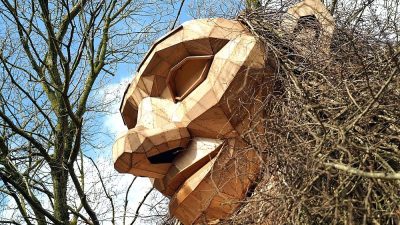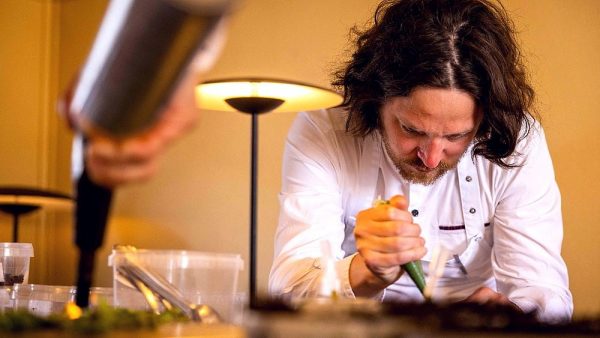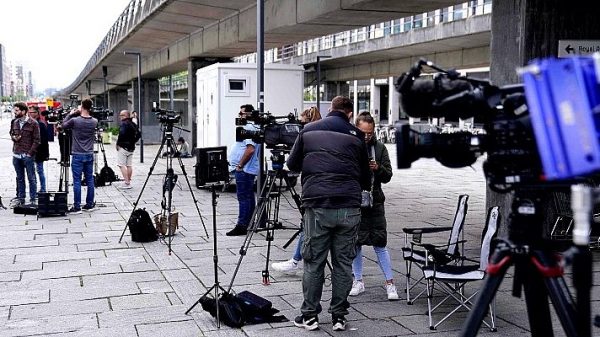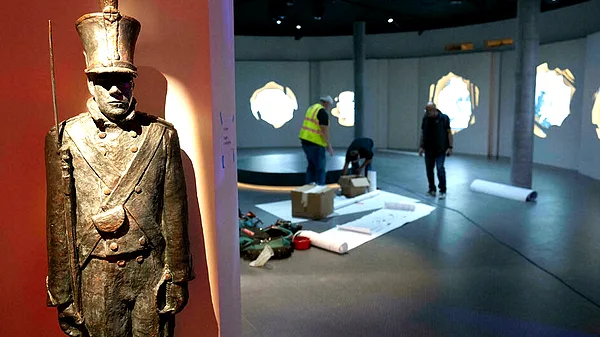By Camille BAS-WOHLERT
COPENHAGEN (AFP) — At the “Human Library”, you can “loan” a person to tell you their life story, an original concept born in Denmark that is designed to challenge prejudice and which has spread around the world.
Iben — a quiet 46-year-old sexual abuse victim with mental health issues who doesn’t give out her last name — is one of eight “books” curious people can loan on this autumn day in Copenhagen.
For 30 minutes, you can ask anything you want, either one-on-one or in a small group.
“The Human Library is a safe space where we can explore diversity, learn about ways in which we’re different from each other, and engage with people we normally would never meet… and challenge your unconscious bias,” explains Ronni Abergel, the project’s garrulous initiator.
He created the living library in 2000 during the Roskilde music festival and went on to build a non-profit organisation.
The concept has since found its way into more than 70 countries.
“A reading truly is a conversation,” says Abergel.
“I’m going to take a few minutes to explain my topic, my background, and to make sure that you can ask me anything about being HIV (positive) or disabled, or transgender, or a refugee or Jewish or Muslim, or whatever my topic may be.”
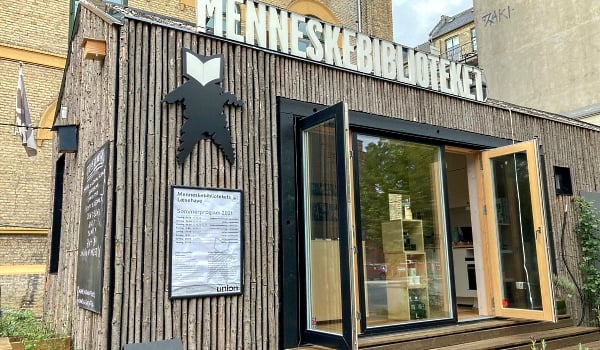
Blank pages
In most cases the conversations flow freely, typically held in a calm environment like a city library, a meeting room, or as today, in the garden of the Human Library’s premises.
“Sometimes people ask a lot and the conversation flows. But sometimes I may need to tell them a little bit more, ask my readers questions in order for them to reflect or ask new questions,” says Anders Fransen, a 36-year-old blind and hearing impaired “book”.
People are encouraged “to ask really difficult questions”, Abergel says, stressing that nothing is off limits, no matter how sensitive the subject may be.
People who loan Iben can choose between three of her oral books: sexual abuse victim, living with borderline personality disorder, or severe post-traumatic stress disorder.
She has on occasion refused to answer questions.
“I have said that that page wasn’t written yet. So they just smiled and said okay,” she recalls.
But she’s never had a bad experience in her four years.
“All my readings are different,” and they’ve evolved over the years, she says.
“When I started, I was in a totally different place… I’ve been working on myself for years.”
“It’s such a gift (being) a book, you can self-reflect.”
Fransen says he’s proud to have helped people develop how they think about handicaps.
After a recent ‘reading’ with some eighth graders, he overheard them talking to their friends.
“They were saying ‘hey, this guy is a cool guy, he has a cool story to tell.’ So I made an impression on them,” he smiles.
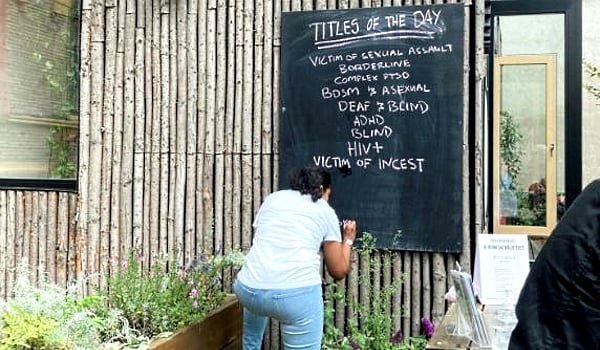
‘Neutral learning space’
‘Loanees’ come away with powerful experiences too.
“All the responses we’re getting indicate that it’s a high impact experience,” Abergel says.
He was recently contacted by a reader who borrowed a human book in 2004.
“She was telling us about the impact (the book had) on her view on Muslims… And she had used that information in the 17 years that have passed. So that has been to the benefit of the community, her and other people of Muslim background.”
In an increasingly polarized world, Abergel wants his initiative to help people become “less apprehensive, more open, more understanding and accepting of your right to be different.”
But, he insists, the organization is not about promoting diversity or combating prejudice.
“We run a neutral learning space where there is an opportunity for you to engage, learn about yourself and other groups,” he says.
“What you learn and what you do with your learning is entirely in your hands.”
One of those loaning a book is 41-year-old Karem.
“To see the person and listen to him or her and see the perspective, the whole story that is almost unfolding in front of you” is “very touching”, he says.
“It lets people see that at the end of the day we are a lot of titles, but the same flesh and blood and bones.”
ADVERTISEMENT
ADVERTISEMENT






